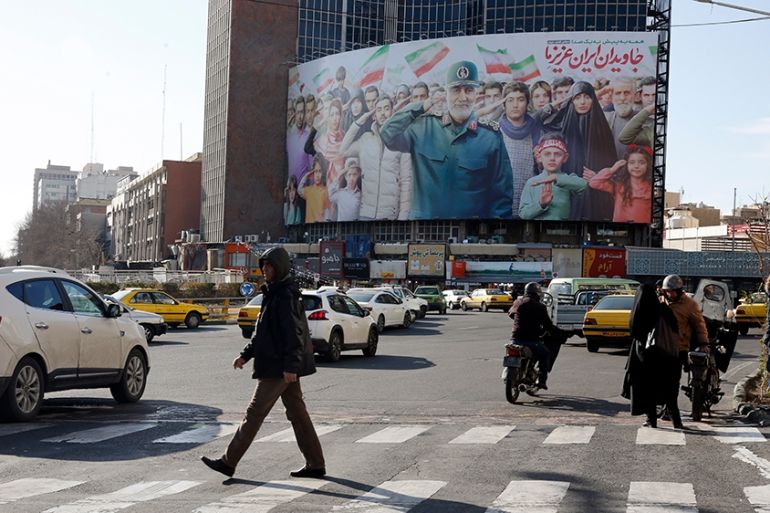Iran candidates kick off campaigns for parliamentary elections
Guardian Council, which vets prospective candidates, barred more than 9,000 from out of more than 16,000 aspirants.

Thousands of Iranian candidates approved to run in parliamentary elections kicked off their campaigns on Thursday ahead of next week’s vote, even after authorities barred thousands of others from running, mainly reformists and moderates.
The February 21 parliamentary elections come amid high tensions between Tehran and Washington, which is at its peak in 40 years.
Keep reading
list of 3 itemsUS charges five with conspiring to violate oil sanctions on Iran
Iranians mark revolution anniversary amid high tension with US
Iran‘s President Hassan Rouhani has slammed the disqualifications but earlier this week, he urged the crowds in Tehran marking the anniversary of the country’s 1979 Islamic revolution to turn out at the polls in large numbers.
The vote is seen as a test of the popularity of the relatively moderate and pro-reform bloc led by Rouhani, who has struggled to deliver on campaign promises to improve people’s lives as Iran’s economy buckles under the weight of US economic sanctions.
Also, a high turnout in the polls will be seen as a vote of confidence in the country’s Shia theocracy, something Iran has tried to showcase amid the crisis with Washington.
Tensions with the United States could strengthen conservatives by reinforcing long-held distrust of the West.
The crisis escalated further after a US air raid in January that killed Iran’s top general, Qassem Soleimani, and led to a tense confrontation in which Iranian forces accidentally shot down a Ukrainian passenger plane near Tehran, killing all 176 people on board.
The incident, and attempts by officials to initially conceal the cause of the crash, sparked public anger and protests in Iran.
The current 290-member parliament, elected in 2016, has more than 100 reformists and moderates, while the rest of the chamber is split between independents and conservatives.
The powerful Guardian Council, the country’s constitutional watchdog which vets prospective candidates, had barred more than 9,000 people from out of more than 16,000 who had applied in December to enter the race. That left more than 7,000 candidates running in the upcoming vote.
The majority of those rejected were reformist and moderate candidates but there were also some hardliners among those barred and 90 current legislators. The hopefuls now have a week for campaigning, which is to end next Wednesday.
In Tehran, which accounts for 30 seats in the chamber, there are several well-known moderates and reformists on the list, with the rest not known to average citizens.
The conservatives running for seats in the next parliament are headed by former Tehran Mayor Mohammad Bagher Qalibaf.
The moderates and reformists have championed improved ties with the West and expanded social freedoms, but they suffered major setbacks since President Donald Trump’s election.
Trump pulled the US out of Tehran’s 2015 nuclear deal with world powers, setting the agreement – which was championed by Rouhani – hurtling towards collapse, and reimposed new and tougher sanctions on Iran, which sent its economy into free fall.
|
|